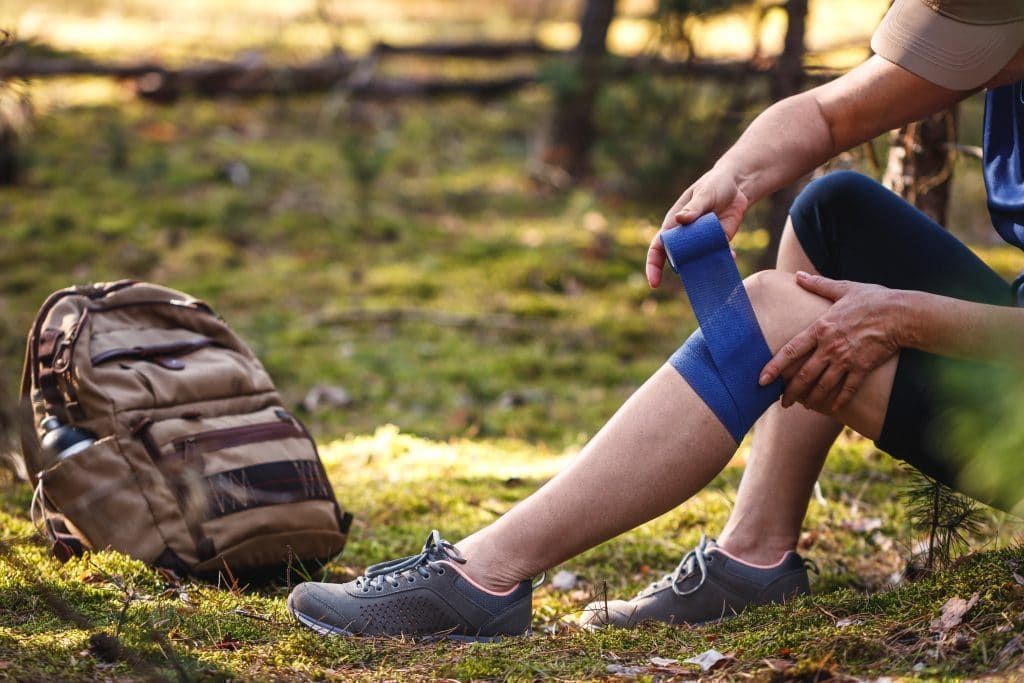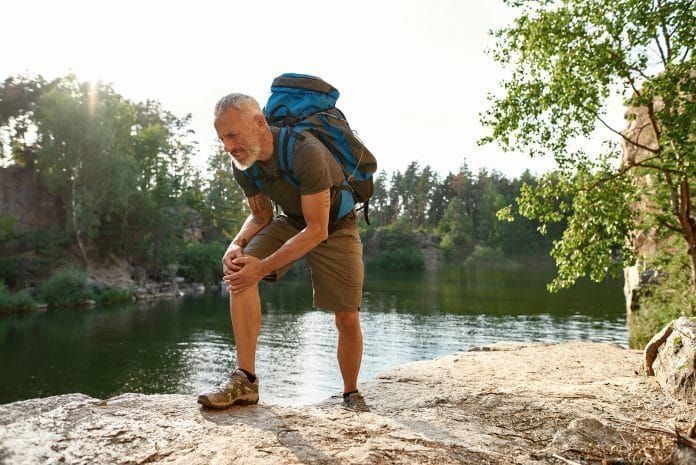How to avoid knee pains during a hike ?
Knee pain, or hiking gonalgies are unfortunately quite frequent. Strongly disabling, these pains are generally felt during the descent and spoil the pleasure of mountain walking. Apart from a joint problem that requires consultation, there are fortunately effective solutions for Avoid knee pain in hiking !
What are the causes of knee pain during a hike ?
The lower joints are subject to harsh test during a hike, especially downhill. The ankles and the knees must support a large load which, depending on the degree of the slope and your walking speed, can represent up to two, even three times your weight, not to mention that of your backpack.
In addition to the joints, the assembly descent impacts the muscles which are much more asked than on the rise. Constantly under tension, the quadriceps must pull stronger on the patella, which increases the pressure on the patellar cartilage.
The balance between extensor and flexor systems is then broken and many hikers then suffer from inflammation in the knee and tendonitis.
But, beware, although they are the main causes of joint hiking pain, it is important to consult a doctor to make sure that your pain does not hide another pathology: osteoarthritis, muscle spins, cartilage lesions, sprain, arthritis…

How to avoid them ?
To take full advantage of your hike, here are some tips for Avoid kneeling pain ::
- The warm -up: as with any sporting activity, it is essential to warm up before going on a hiking, especially if the route starts with a difficult descent or a rise. The warm -up will allow your knees to be lubricated by producing synovial fluid and therefore improve your joint mobility.
- Stretching after hiking: like heating, stretching is a step not to be overlooked. Make some extensions at the end of the route to allow muscles to relax and regain their initial length.
- Preparing your knees upstream: good physical condition will save you unnecessary suffering ! Before you embark on steep and rocky paths, especially if you are considering a long trekking, plan a few muscle strengthening sessions (bodybuilding, cycling, leg extensions, etc.).
- Eating healthy: a balanced diet and weight loss are beneficial for all of your joints. Favor foods with anti-inflammatory properties such as green vegetables, red fruits, nuts ..
How to relieve knee pain in hiking ?
Good physical condition is necessary to avoid knee pain during a hike, but it is also advisable to apply these few recommendations for relieve the knee joint as much as possible ::
- Lighten your bag: the weight factor impacts enormously on your joints. If you are particularly sensitive to the knees, plan a lighter backpack and bring only the strict necessary for your day of walking.
- Use hiking sticks: this is the essential equipment of the trekker ! The sticks will lighten the weight on your knees by soliciting your arms. They will reduce shock and tension and avoid many joint pain.
- Adopt a good walking technique: to avoid knee pain during hiking, remember to walk down to downhill. It will then be your quadriceps who will bear the load and not your joints. The effort is more sustained, but you risk less injured. Ash, take small steps to avoid too large knee bending.
- Choose suitable shoes: invest in quality hiking shoes. They must be comfortable and amortize the impact of your steps on the ground to avoid injuries. Avoid high -rod shoes that hinder the proper functioning of your joints, especially ankles.
- Use a kneever: an orthosis can be considered to relieve knee pain, but only on the doctor’s prescription, because if it is unsuitable, it can do more harm than good. For example, it can be very effective in the event of patellar pain, but useless for a gonalgia of the carrier joint.
Finally : if despite all your efforts to avoid knee pain during hiking, you finish the route with an swollen and painful knee joint, Apply ice cream and put your legs at rest ! However, this does not replace a consultation with your doctor who may direct you to a physiotherapist or a knee specialist in the event of a more serious problem.
